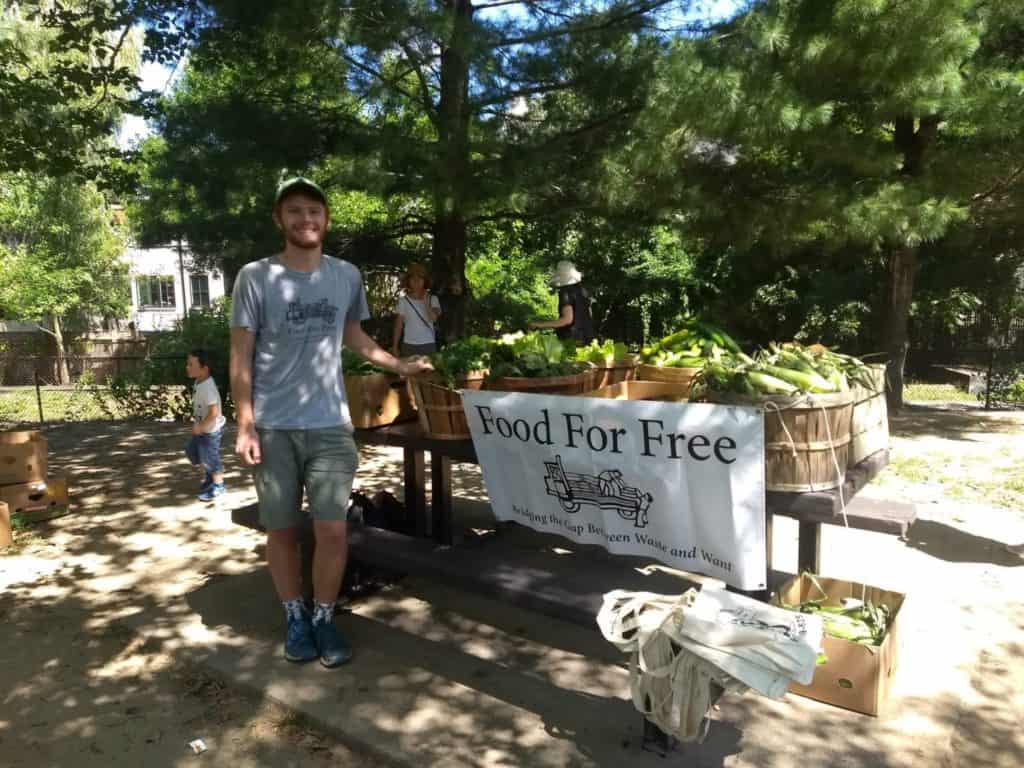“If you spend a dollar on food, how much of that dollar goes to each level of the food system?” This is the question that culinary students puzzled through during their first class back from summer vacation. Working together around a seminar table, they made a list of different actors in the food system—farmers, processing plants, retailers, food service employees—and spent the rest of class in discussion with each other about the actual and the ideal roles of each of these actors. These students at the Rindge School of Technical Arts have spent the last three years learning about the food service industry and gaining practical skills in an instructional kitchen. Since this school year began, they’ve been animated over a new assignment: improving the food system.
The Rindge School of Technical Arts (RSTA), in collaboration with Food For Free, is incorporating food justice education into its culinary arts curriculum. In addition to packing food for the Cambridge Weekend Backpack Program, seniors in the Culinary Arts and Hospitality program are learning about the food system, and through student-led discussions and self-driven projects, are working to make it better.
Cambridge Rindge and Latin School has already been a close community partner with Food For Free by supporting the CWBP. Each week, students from the culinary program sort and pack food in the RSTA instructional kitchen, so that the food is ready to be received by Cambridge’s elementary schools. Without the volunteer help, workspace, and storage capacity that RSTA provides, the Backpack Program would not be able to serve its current 16 participating schools.
Chef Catherine Thomas saw the potential for her students to gain a deeper understanding of the problems that the CWBP seeks to address. Working together, Chef Thomas and Food For Free’s Lauren O’Brien developed a curriculum for the 2017-2018 school year that will cover several issues of food justice, including food waste, food insecurity, and food recovery. The course also has built-in opportunities for developing professional skills, such as interviewing, public speaking, and financial literacy.
The capstone of RSTA’s food justice class is a project in which students will research and present on one area of the food system. Part of the students’ research will be to interview someone involved in food justice work in the community, such as a nonprofit coordinator or a local restaurant owner. Students will consider challenges the community faces regarding the food system, and propose a possible improvement or solution.
The syllabus’ project description speaks to the class’ interactive design: “Rather than simply read about what is being done to tackle food injustice, we will be attempting to learn from those who are on the ground each and every day working towards improvement of the food system.”
One goal of the class is for students to learn through assignments such as interviewing each other, working on a budget for a hypothetical nonprofit organization, and taking field trips to several sites in Cambridge where food justice is happening.
Lauren O’Brien, who will be co-teaching alongside Chef Thomas, hopes to “get the ball rolling in the students’ minds if they want to work in food…to consider the injustice throughout the food system at every level.” We’re excited to see how the students’ research will add a deeper level of meaning to the CWBP and our partnership with CRLS.


